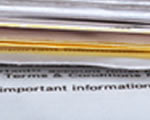 Go to main content
Go to main content
Archive Website of the UK government
Please note that this website has a UK government accesskeys system.
Main menu
Page menu
Parents

DNA testing and the CSA

One of the ways the Child Support Agency (CSA) can sort out disagreements about parentage is by DNA testing. If someone denies they are the parent of a child after the CSA works out child maintenance, they can take a DNA test. Find out more about DNA tests.
About DNA testing
DNA testing can either:
- prove 100% that a person is not a child's parent
- show a 99.99% probability that a person is a child's parent
Both the person named as the parent of the child and the parent with care need to agree to take the test. The parent with care will also need to agree that the child can take the test. If the child is over 16 they can give their own permission.
The parent with care is the parent or carer the child normally lives with.
All information given to the testing company, and all the results, will be confidential.
Taking a DNA test
DNA tests can be arranged either:
- by using the DNA testing company that carry out tests on the CSA’s behalf
- through a private DNA testing company
The CSA will only accept the results of a private test if it is satisfied that:
- the test has been carried out by an approved company
- security arrangements meet acceptable standards
- everyone involved is satisfied that the test was carried out properly
- the test was based on samples from the person named as the parent, the parent with care and the child
You can find a list of approved DNA testing companies using the following link.
A DNA test usually involves testing a cheek-cell sample. You can also give a blood sample. Everyone involved must all give the same type of sample.
DNA testing involves a number of steps
Step 1
The DNA testing company sends an information pack to the person named as the parent and the parent with care. The pack includes an appointment form that the person named as the parent should complete and return.
Step 2
The person named as the parent chooses a doctor to perform the test.
Step 3
The doctor will receive a testing kit from the testing company.
Step 4
Depending on which test has been chosen, the doctor will take either:
- some cheek cells from the inside of the mouth using a small sponge on a stick
- a blood sample
Step 5
The doctor will send the samples to the testing company.
Step 6
The testing company will send the results to the parent with care, the person named as parent and to the CSA. The results may also be given to a court as evidence.
Paying for a DNA test
The fee for testing three people (two adults and one child) is £252.00. If the person named as the parent pays when they return their appointment form, they can pay a discounted rate of £187.20.
These costs may change, so call the CSA to check. None of the money for DNA testing goes to the CSA.
The CSA expects the person named as the parent to pay for the test.
In special circumstances, the CSA will accept that the person named as the parent can’t pay for the test. If this happens the CSA will pay the fee. But, if the test shows that they are the parent of the child, they will have to repay this money to the CSA.
What happens after the DNA test?
If the test proves that the person is the parent of the child, the CSA will work out how much their payments should be. These payments will include:
- any child maintenance they need to pay
- the cost of the DNA test
If the test results prove that the person named as the parent is not the parent, the CSA may:
- refund the cost of the test (if it was carried out by the company that arranges tests for the CSA)
- refund any child maintenance payments made after the date that parentage was denied
The CSA doesn't have to pay back any child maintenance that was paid before the person denied they are the parent of the child.
All decisions about refunds are made at the discretion of the CSA and depend on the circumstances of each case.
More useful links
In this section...
Additional links
Family-based arrangements
Did you know? You and the other parent can also arrange child maintenance without anyone else getting involved. Find out about family-based arrangements